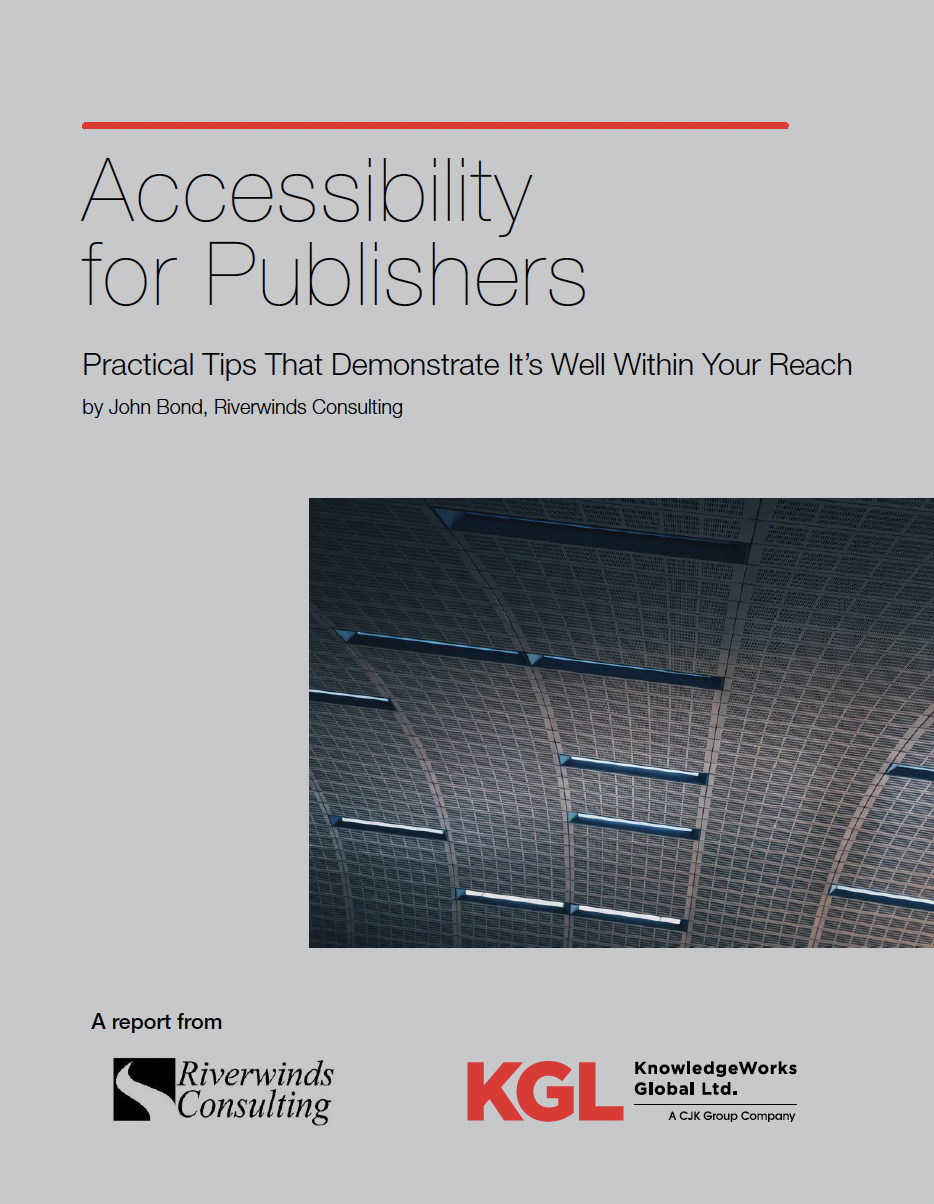Developing a Culture of Accessibility
/by KnowledgeWorks Global Ltd.
Accessibility has been the buzzword in publishing over the last several years as the industry embraces the need to make its content available to all readers. We at KGL have previously highlighted innovations in accessibility in K-12 learning and also potential hazards of not making scholarly content accessible.
As we look to the future, most specifically 2025 when the requirements of the European Accessibility Act will be enforced, we want to focus on the important steps and perhaps changes in corporate culture publishers need to take in order to make their content available for all readers.
By 2025, the European Accessibility Act requires publishers with staff larger than 10 employees and revenue larger than 2 million euros to produce born-accessible digital publications if they want to sell their ebooks in Europe. Accessibility should be included in everything from the project design and production to the company’s website to the distribution of ebooks. Though three+ years seems like a long time in which to implement these changes, and the process of making content accessible is well-established, it still requires focused effort by publishers in order to adapt.
At this year’s Frankfurt Book Fair, the Federation of European Publishers, Frankfurter Buchmesse, the International Publishers Association, and the World Intellectual Property Organization hosted a session that focused on what publishers needed to do to prepare for the European Accessibility Act and how they can do it, with thoughts and perspectives from panelists Cristina Musinelli, Secretary General, Fondazione LIA; Rachel Comerford, Senior Director, Accessibility Outreach & Communication, Macmillan Learning; and Laura Brady, Director, Cross Media, House of Anansi Press.
Since she began four years ago, Brady has been working on accessibility for House of Anansi Press. She brings a “fairly strict accessibility” lens to all that they do, raising questions about content accessibility and the processes they use for content submission in meetings. Some of the developments they have made include editors and writers adding alt text to manuscripts during copyediting. House of Anansi Press has a dedicated person whose sole job is to write descriptions for the images on the website, not just from now forward, but going back several years. The publisher also has a braille publishing program that makes the braille edition available simultaneously with the non-braille edition. Brady highlights how important it is to have someone who is solely dedicated to making a publisher’s work accessible in order to really help move these changes forward.
For Comerford, who deals with textbooks at Macmillan Learning, accessible content may be more complicated to develop because of the type and variety of images and graphs and formats that come with textbook publishing, but it is well worth the challenge. “We feel the responsibility of the broad impact that educational publishing has,” said Comerford. Macmillan Learning has the opportunity “to rebuild the future of education and to set [publishers in the future] up for making all content accessible.”
Making content available is not just about doing the right thing, Musinelli noted, it’s about producing higher quality content. “It will be the same digital book for every reader.”
At the event, Sylvie Forbin, Deputy Director General of the Copyright and Creative Industries Sector at WIPO, also presented the Accessible Books Consortium International Excellence Awards to the Taylor and Francis Group. Taylor and Francis has worked closely with writers to include alternative texts for images, graphs and diagrams, and has submitted over 28,000 accessible file requests. Brianna Walker, Head of Content Management at Taylor & Francis Books stated that this represented more than 2 years of focused work.
Musinelli noted that it isn’t just one group that needs to be thinking about accessibility. “It’s important to have the involvement of all the company. This isn’t just a problem for people in production, it’s a completely different mindset. I think it should be a culture within the publisher. You need to develop a culture of accessibility.”
The recording of the full panel discussion and award presentation can be viewed on the Frankfurter Buchmesse site.
KnowledgeWorks Global Ltd. (KGL) is a champion of digital equality. For further resources and guidance on accessibility standards and compliance for journals, books, digital media, websites, eLearning, and more, visit kwglobal.com/accessibility or email us at info@kwglobal.com.



